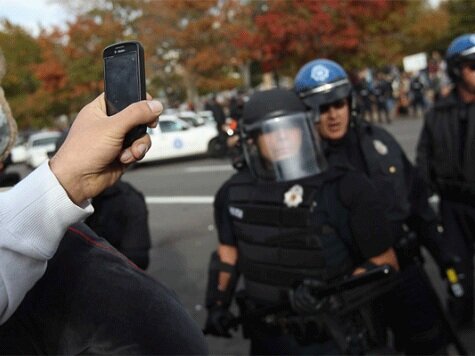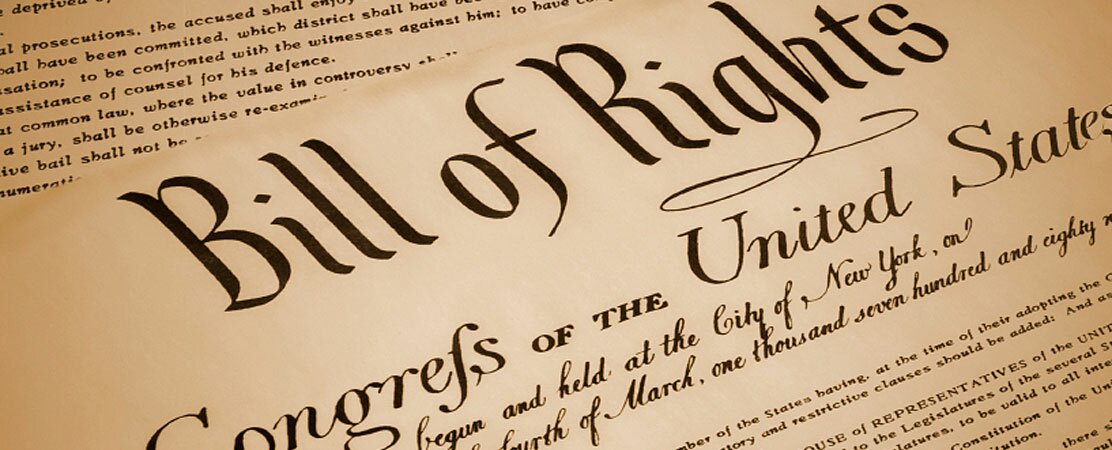Forewarning: This article is not meant to be taken as cheeky or malicious.
Unwarranted police brutality was frequent in my home growing up, and I’ve countlessly been stonewalled by friends and extended family as to why the unreasonable acts committed against my family were justifiable. I’ve watched my innocent brother be beaten and I’ve been told by cops that it was to “ensure my safety” (almost definitely an issue of profiling.) I’ve also stood witness to a police officer stabbing his ex-wife’s tires in front of their own children. It doesn’t take much to prove just how corrupt American law enforcement actually is, but in case you are curious (and want to browse over one hundred snippets of evidence and statistics) I highly recommend you check out Cop Block and Flex Your Rights.
That being said, here are some tips on how to handle the arm of the law, especially when harassment and arrests are involved.
You are allowed to film the Police
38 States still hold true to outdated laws that allow eavesdropping. Florida updated their ruling to “require the consent of all parties” before filming altercations. Washington, Pennsylvania, New Hampshire, California, Michigan, Montana, Maryland, Nevada, Conneticut, Massachusetts and Illinois also fall under this jurisdiction. However, the same updated guideline has an “expectation of privacy provision” that does not apply to the public (or those that are on-duty) making it technically legal to openly record cops. Michael Allison, a man who refused to take plea in court after being caught for recording police without their consent, faced up to 75 years in an Illinois state prison (the case was eventually dismissed, but the penalty is very real.) Secretly recording police is probably not in your best interest. In case your altercation is taken into court, you’ll want to limit your legal exposure and make your case stronger.

Remind officers of your rights
And be specific! A great example of knowing your constitutional rights can be found in this semi-famous “4TH of July DUI Checkpoint” video. Although he records this transaction without the consent of the police, the recordee is fully aware of his rights as a civilian and uses this knowledge against the cops’ verbal abuse.
Sometimes, however, knowing a policeman’s jurisdiction may not be enough. Two minutes and forty seconds into the recording and you can see how a police officer uses false alerts (ball-fetch commands) on a K-9 to rile it up, giving himself an excuse to search the recordee’s car without their consent. Like I said in my opening statements, American law can be unjust.
Another great reason to remember your rights (especially if you’re visiting New York anytime soon) is the prejudicial ‘stop-and-frisk’ policy. Also known as the ‘stop-question-and-frisk’ program, police officers are allowed to ask pedestrians of their immediate intent (“where are you going?”, “What are you doing?”, “Why do you seem in a hurry?”) and search the pedestrian’s body for weapons and/or illegal substances. Cops are warranted to do this to any civilian they see as a “potential threat.” In other words: Cops are legally allowed to pester people of color, the homeless and women for their own personal gain. Whether it’s to write a ticket to obligate their 250 (‘stop-and-frisk’) or to get away with verbal abuse/sexual harassment, the authorization of “proactive policing” reigns to this day. This policy has recently taken a steep decline (an 86 percent drop since 2012, according to Huffington Post), but the NYPD still hails it as one of the best methods to monitor urban street life. ‘Stop-and-frisk’ was ruled as “a policy of indirect racial profiling” by Judge Shira Scheindlin in August of 2013.

Via: thelearnedsergeant.com/
I bring this New York cop regulation up because there are specific demographics police departments are intent on harassing and there are law enforcement officers that will look for quick ticket write-ups to satisfy “productivity goals” (quotas). There is also a ridiculous amount of statistical data to back cops’ incessant racial profiling. States that do not have something as black-and-white as a ‘stop-and-frisk’ policy use “probable cause.” If you are African American, Latino, female or wear certain types of ‘threatening’ clothing, you need to know your legal rights. You have the right during any police encounter to remain silent. You do not have to bend to a cop’s request. You do not have to condone a police search of your vehicle. If you choose to respond to an officer, these three phrases are legally permissible:
“Am I free to go?”
“I do not consent to a search.”
“I’m going to remain silent.”
Act like an adult, even if they won’t.
This may be the most important tip on this list. It may seem like a no-brainer from the comfort of your own home (or wherever you’re reading this), but conflict is often difficult to navigate and the task of standing up to a police officer can be daunting. Keep your emotions in check. Getting angry is a surefire way to land yourself in jail or get yourself hurt. Physical retaliation against an officer, unless under immediate threat of death, is absolutely not an option. Violence rarely solves anything, and in this case it will only serve to get you arrested or possibly killed. In many cases your inability to derail will also help you in court (in the case that you may unfortunately end up there.) By maintaining vigilance and observing the rules of the Bill of Rights, it is possible to avoid undue injustice in altercations with the police department. Advancements in technology mean stronger chances to oppress, but fortunately (and also unfortunately) we live in a world where cameras are everywhere, and more often than not they are video-stream capable.

Via: constitutioncenter.org/
Remember: It’s always important to know the law where you live, almost every state allows the freedom to record video and audio in public forum and always try to be as courteous as possible when handling a police officer. By making an effort to passively resist the erosion of our civil liberties, you can fight Government tyranny and weather any wrongful persecution.
Featured photo courtesy of: Acrylics and Buttons





